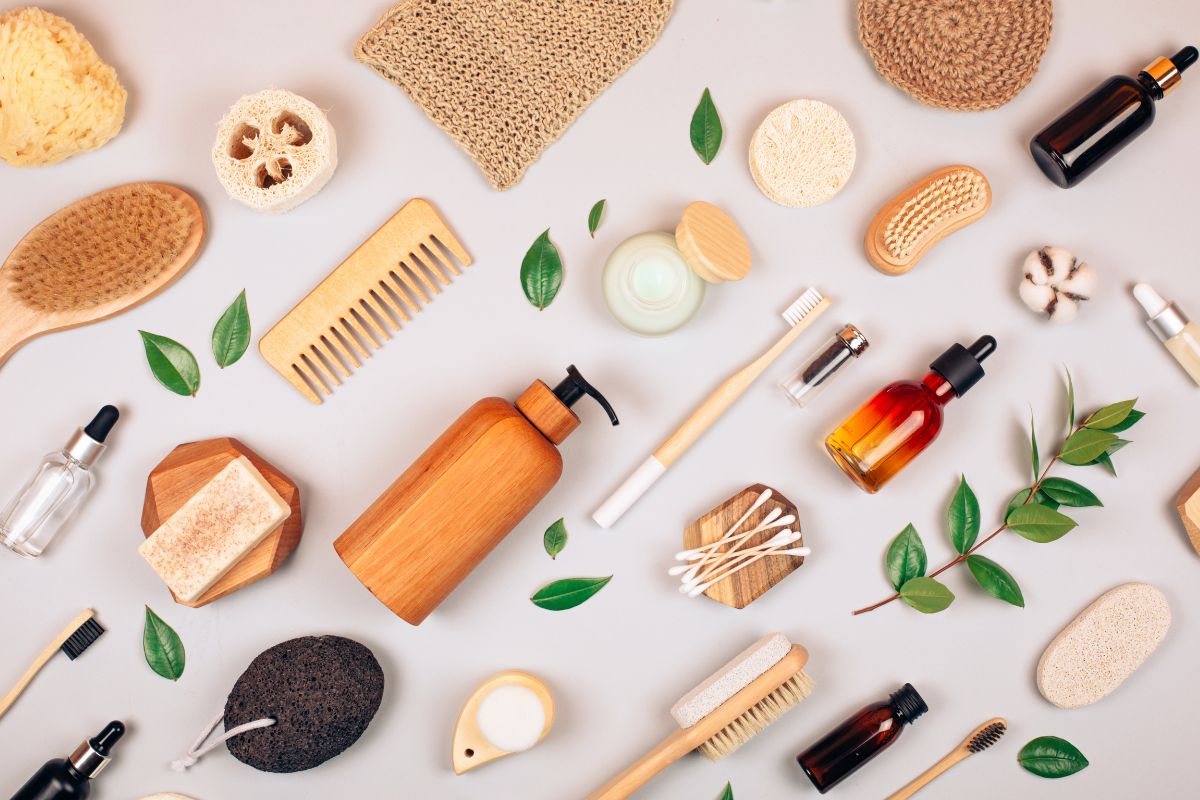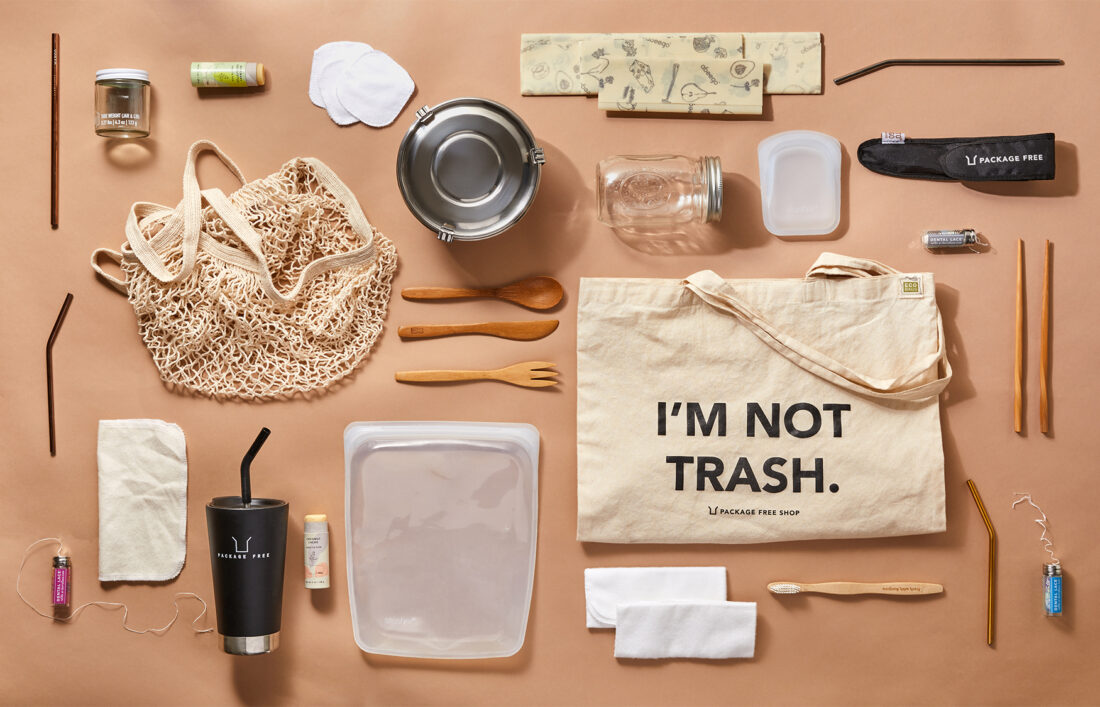The Ultimate Guide to Reusable and Zero-Waste Products: How to Build a Sustainable Lifestyle
As we become more conscious of the environmental impact of our daily habits, reusable and zero-waste products are quickly gaining popularity. From reducing single-use plastic to minimizing waste, these products not only benefit the planet but also promote a more sustainable and eco-friendly lifestyle. In this comprehensive guide, we’ll explore everything you need to know about reusable and zero-waste products, their benefits, and how you can incorporate them into your daily routine.

What Are Reusable and Zero-Waste Products?
Reusable products are items designed to be used multiple times, significantly reducing the need for disposable alternatives. On the other hand, zero-waste products are those specifically created to minimize waste in every stage of their life cycle—whether through recyclable materials, compostability, or durable designs. The goal of zero-waste living is to divert as much waste as possible from landfills by utilizing products that can either be reused or returned to the environment in a sustainable way.
Key Features of Reusable and Zero-Waste Products:
- Durability: Made to withstand multiple uses, which helps reduce the consumption of disposable items.
- Eco-friendly materials: Often crafted from natural, biodegradable, or recyclable materials like bamboo, glass, or stainless steel.
- Waste reduction: Designed to be reusable, recyclable, or compostable, helping you reduce your environmental footprint.
- Sustainable packaging: Many zero-waste products come with minimal or eco-friendly packaging, such as cardboard or compostable wraps.
Why Should You Switch to Reusable and Zero-Waste Products?
Switching to reusable and zero-waste products offers countless benefits, not only for the environment but also for your health and finances. Here are some of the main reasons to make the switch:
1. Reduction in Waste
One of the most significant benefits of adopting reusable and zero-waste products is the reduction in waste sent to landfills. Single-use items, such as plastic bags, bottles, and straws, contribute significantly to global pollution. By switching to reusable alternatives, you help reduce the amount of waste produced, ultimately contributing to a cleaner, healthier planet.
2. Cost Savings
While reusable products may have a higher upfront cost, they are designed to last longer than their disposable counterparts. Over time, investing in quality reusable products can save you a considerable amount of money. For example, reusable shopping bags, water bottles, and coffee cups will last for years, meaning you won’t need to constantly purchase disposable alternatives.
3. Healthier Choices
Many single-use items, especially plastic, contain harmful chemicals like bisphenol A (BPA) and phthalates, which can leach into food and drinks. By using reusable products made from materials like glass, stainless steel, or bamboo, you avoid these harmful chemicals and make healthier choices for yourself and your family.
4. Support for Sustainable Practices
By choosing zero-waste products, you are supporting companies and brands that are committed to sustainability. These brands prioritize eco-friendly production methods, fair labor practices, and minimal environmental impact, promoting a greener future.
Top Reusable and Zero-Waste Products to Try
The world of reusable and zero-waste products is vast and diverse. Whether you’re looking to reduce waste in your kitchen, bathroom, or personal care routine, there are options for every need. Here are some of the top products to consider integrating into your lifestyle:
1. Reusable Water Bottles
Plastic water bottles are one of the most common forms of single-use plastic waste. Instead, consider investing in a reusable water bottle made from materials like stainless steel, glass, or bamboo. These bottles are durable, easy to clean, and can keep your drinks cold or hot for extended periods. Brands like Hydro Flask and S’well offer high-quality reusable bottles that will reduce your reliance on disposable plastic bottles.

2. Reusable Shopping Bags
Reusable shopping bags are an essential item for anyone aiming to reduce plastic waste. Many cities have banned or taxed plastic bags, which makes using reusable fabric bags more important than ever. You can easily find bags made from cotton, jute, or recycled materials. These bags are lightweight, foldable, and sturdy enough to carry groceries or other items.
3. Compostable or Reusable Straws
Plastic straws are a major contributor to plastic pollution. Instead of using disposable straws, consider switching to reusable straws made from materials like stainless steel, silicone, or bamboo. Alternatively, compostable paper straws offer a sustainable solution for those who prefer single-use options that break down naturally.
4. Beeswax Food Wraps
A perfect alternative to plastic cling film, beeswax wraps are made from organic cotton infused with beeswax, jojoba oil, and tree resin. These wraps are perfect for covering food, wrapping sandwiches, or storing produce. Not only are they reusable, but they are also compostable at the end of their lifespan, making them a zero-waste solution.
5. Reusable Coffee Cups
Coffee cups are another major contributor to waste, especially since most disposable coffee cups are not recyclable due to their plastic linings. Invest in a reusable coffee cup made from materials like stainless steel, bamboo, or glass. Brands like KeepCup and Stojo offer stylish, durable, and portable coffee cups that are perfect for your daily caffeine fix.
6. Zero-Waste Toothbrushes
Plastic toothbrushes are a common household item that contributes to plastic waste. By switching to a bamboo toothbrush, you can eliminate the plastic handle while maintaining the same brushing effectiveness. Bamboo toothbrushes are compostable, and some brands offer recyclable packaging.
7. Cloth Diapers
Cloth diapers are an excellent alternative to disposable diapers, which can take hundreds of years to decompose. Modern cloth diapers are easy to use, highly absorbent, and made from organic materials, making them a sustainable choice for parents.
8. Eco-Friendly Cleaning Products
Cleaning products and their packaging contribute significantly to waste. Opt for eco-friendly cleaning products that come in reusable spray bottles and refillable containers. Many brands offer cleaning solutions made from plant-based ingredients that are safe for both your home and the environment.

How to Start Incorporating Reusable and Zero-Waste Products into Your Life
Switching to a zero-waste lifestyle doesn’t have to happen overnight. Start small, and gradually phase out single-use products in favor of their reusable counterparts. Here’s a step-by-step guide to help you get started:
1. Evaluate Your Consumption
Start by identifying areas where you are currently using disposable products. Are you using plastic bags, bottles, or food wraps? Once you know where your waste is coming from, you can focus on swapping out those items for sustainable alternatives.
2. Invest in Reusable Essentials
Buy a few reusable items that will have the most impact on your daily habits. Focus on products that are most useful to you, such as a water bottle, shopping bags, or coffee cups. From there, you can expand to other products, like beeswax wraps or cloth napkins.
3. Commit to Refill and Reuse
Where possible, choose products that can be refilled rather than replaced. Look for refillable cleaning bottles, shampoo bars, and refillable beauty products. This reduces waste and supports the idea of a circular economy.
4. Learn the Importance of Recycling and Composting
Recycling and composting play an essential role in zero-waste living. Make sure to properly dispose of any materials that cannot be reused. Research your local recycling programs and explore how you can compost organic waste at home.
5. Educate and Inspire Others
Once you’ve embraced reusable and zero-waste products, share your journey with friends and family. By inspiring others, you can help create a broader movement toward sustainable living.
FAQs About Reusable and Zero-Waste Products
1. Are zero-waste products more expensive?
While some zero-waste products may have a higher initial cost, they are usually more durable and long-lasting. Over time, they can save you money by eliminating the need for disposable alternatives.
2. Can I really make zero-waste living work on a budget?
Yes! You don’t need to buy expensive products to live a zero-waste lifestyle. Start with simple swaps, like using cloth bags instead of plastic bags or making your own cleaning solutions using natural ingredients like vinegar and baking soda.
3. Where can I buy reusable and zero-waste products?
You can find reusable and zero-waste products at many eco-friendly stores, both online and in physical shops. Popular online marketplaces include Etsy, Amazon, and eco-specific websites like [Zero Waste
Store](https://zerowastestore.com).
4. Are reusable products safe for food contact?
Yes, many reusable products like water bottles, food wraps, and coffee cups are made from non-toxic, food-safe materials like stainless steel, glass, and bamboo, making them perfectly safe for food contact.
Conclusion
Switching to reusable and zero-waste products is one of the easiest and most effective ways to reduce your environmental footprint. By making small, intentional changes in your daily life, you can contribute to a healthier planet, save money, and make better choices for your health. Start incorporating these eco-friendly alternatives into your routine today and embrace the sustainable lifestyle you deserve.
For more tips on living a zero-waste lifestyle, check out resources like Zero Waste Home and The Zero Waste Collective.

